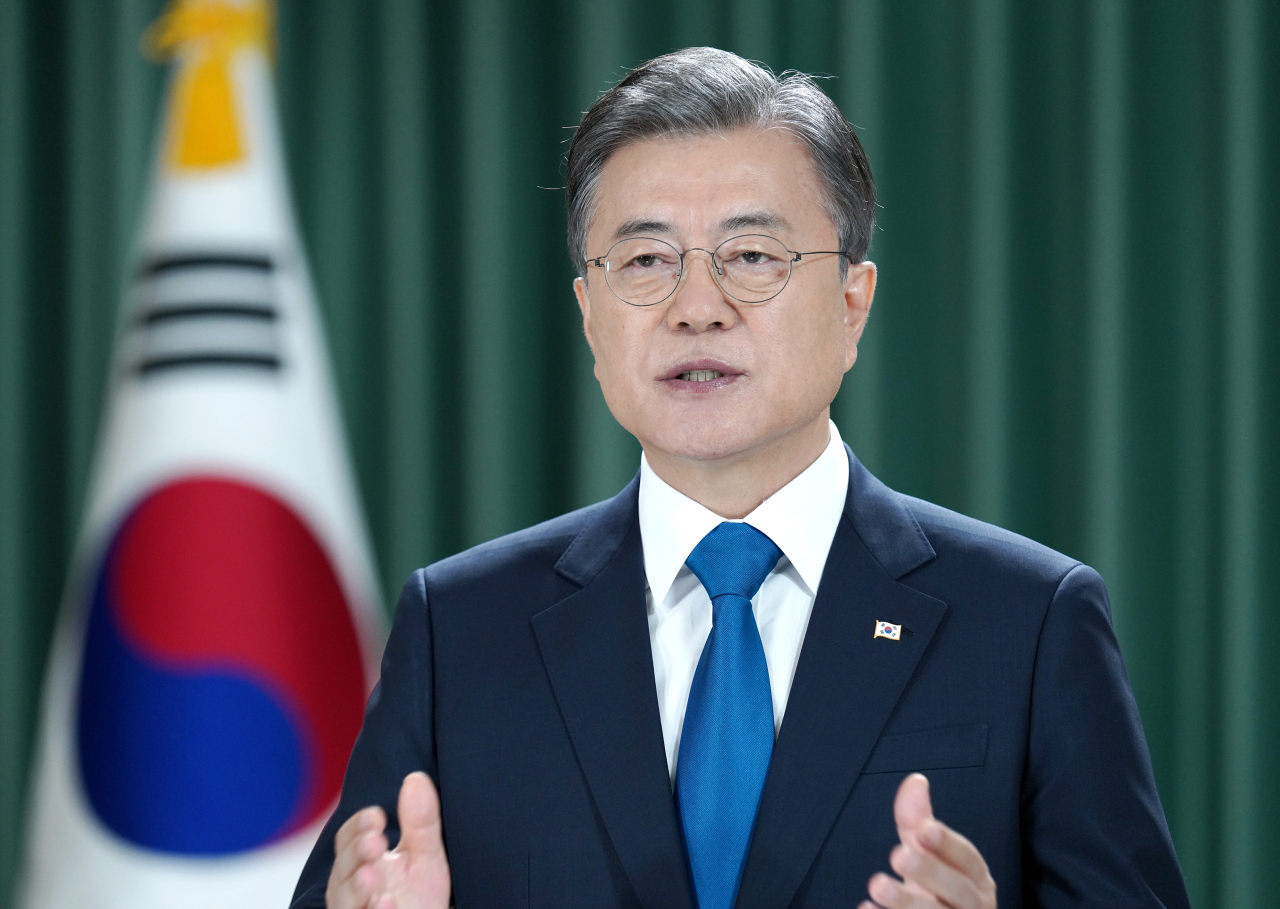
President Moon Jae-in addresses the UN General Assembly in a video message, Sept. 22, 2020. (Cheong Wa Dae)
President Moon Jae-in called for help to formally end the 1950-53 Korean War in his UN address, but the US appeared wary, with the State Department highlighting “unified response” to North Korea, and a former US security official describing the overture as “out of sync” with the US stance.
“We are committed to close coordination on our unified response to North Korea,” the State Department told Voice of America on Wednesday, without elaborating if Washington was on board with Seoul on the declaration.
The message is seen as hinting at US discontent with the Moon administration, which had not fully consulted its biggest ally in advance on the topic. The two Koreas are at an armistice without a peace treaty.
Former US security officials were more pronounced in voicing concerns.
“I have also rarely seen a Korean president deliver a speech in the United Nations more out of sync with where the US Congress and US administration are,” Michael Green, a senior adviser at the Center for Strategic and International Studies, told VOA on Wednesday
Green served as director of Asian affairs and the president’s special assistant for national security affairs under George W. Bush.
“Achieving the denuclearization of North Korea and establishing a viable peace are the necessary conditions for permanently ending the Korean War,” Evans Revere, deputy assistant secretary of state for East Asian and Pacific affairs, told VOA.
Revere added that Washington cannot simply declare the end of the war since that means nothing unless other steps are taken. Pyongyang considers any declaration empty, too, as long as it sees robust Seoul-Washington alliance backed by American troops in Korea.
Robert Gallucci, who served as the chief US negotiator for the North Korean nuclear crisis in 1994, found Moon’s idea of formally ending the Korean War agreeable, but with conditions.
“But let’s connect it to other moves towards resolution of the existing situation of conflict, presumably one in the area of nuclear weapons,” he told VOA, cautioning against seeking alone a step to end the war.
By Choi Si-young (
siyoungchoi@heraldcorp.com)






![[Graphic News] More Koreans say they plan long-distance trips this year](http://res.heraldm.com/phpwas/restmb_idxmake.php?idx=645&simg=/content/image/2024/04/17/20240417050828_0.gif&u=)